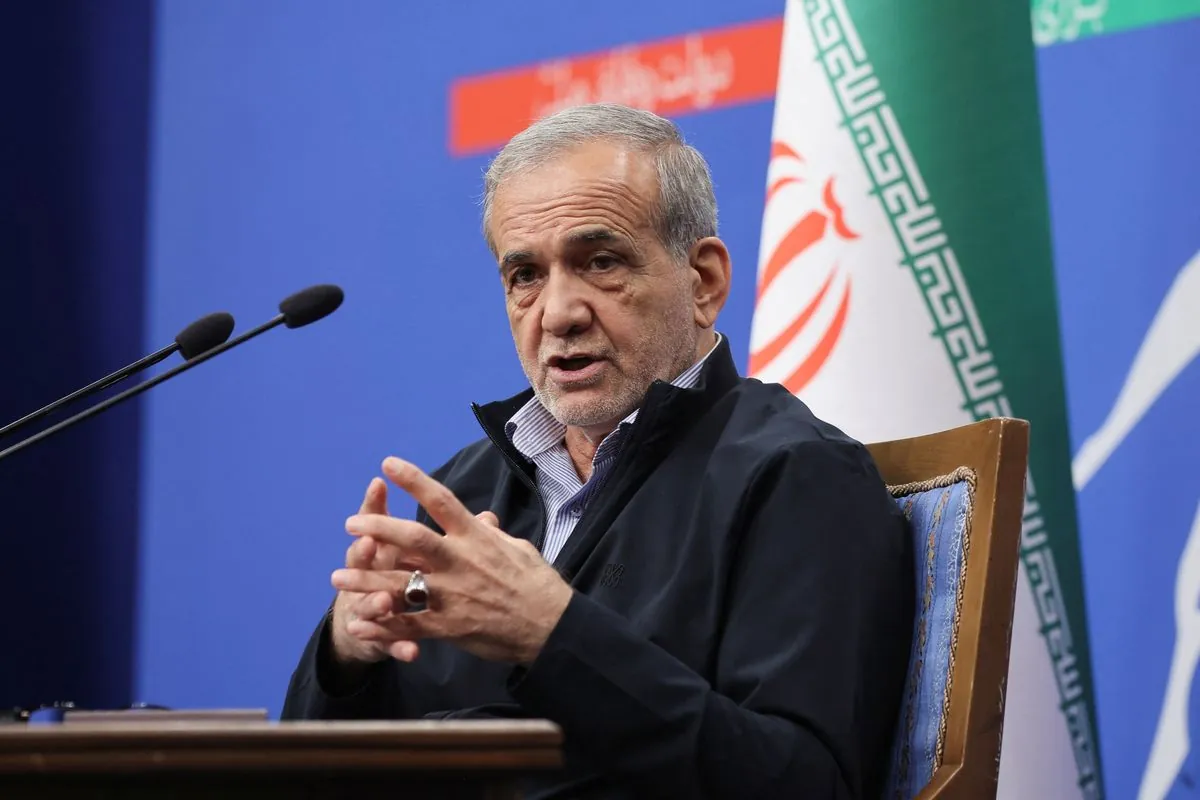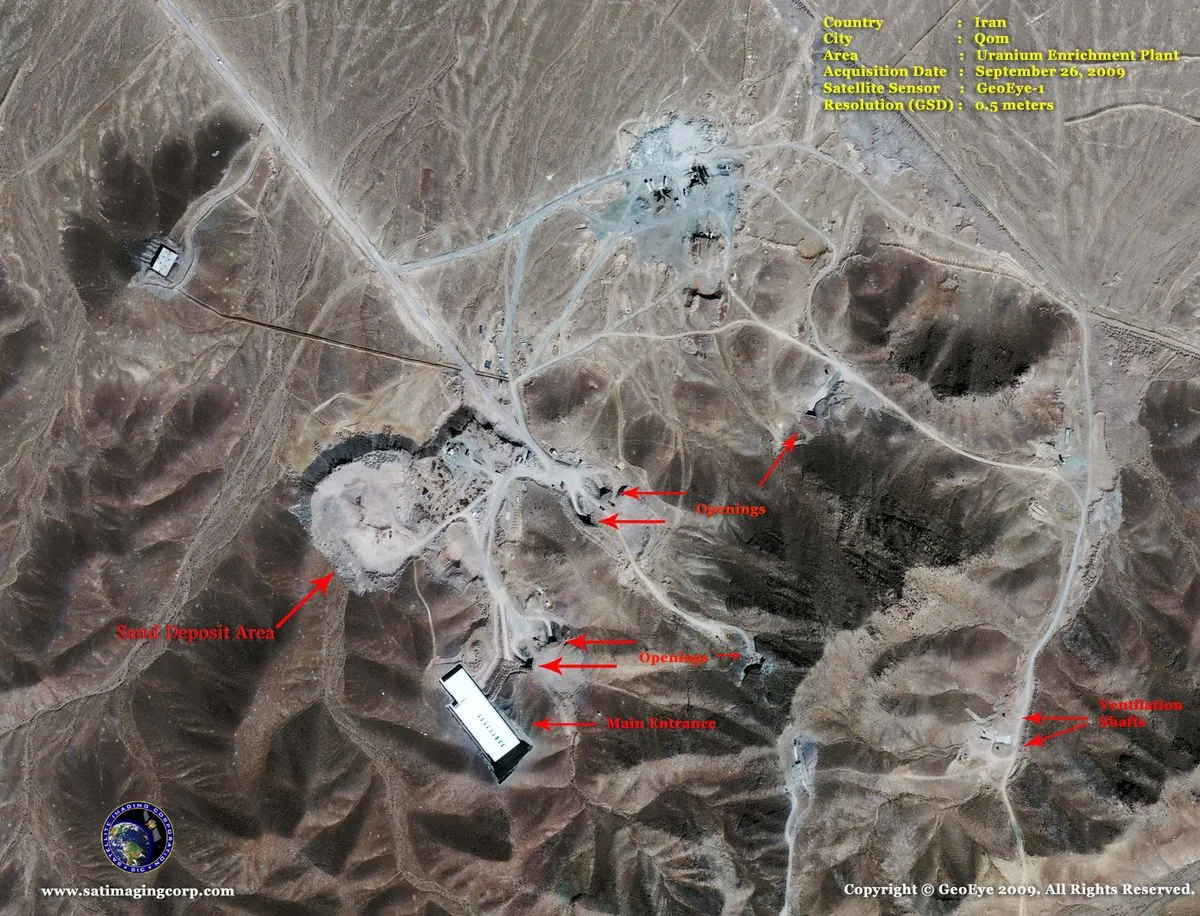Iran's President Addresses Nuclear Enrichment and International Relations
Iran's new president claims uranium enrichment was forced by U.S. actions. He seeks sanctions relief and sets conditions for talks, while addressing regional tensions and defense policies.

In his inaugural press conference, Iran's newly elected reformist president, Masoud Pezeshkian, addressed the nation's controversial uranium enrichment program and its stance on international relations. Pezeshkian asserted that Iran's decision to enrich uranium to near-weapons grade levels was a direct result of the United States' withdrawal from the 2015 nuclear deal, known as the Joint Comprehensive Plan of Action (JCPOA).
Pezeshkian emphasized Iran's commitment to peaceful nuclear development, stating, "We want to solve our technical and scientific needs, we are not looking for nuclear weapons." This statement aligns with Iran's long-standing position that its nuclear program, which began in the 1950s under the U.S. Atoms for Peace program, is solely for civilian purposes.
Currently, Iran is enriching uranium to 60% purity, a significant increase from the 3-5% typically used for nuclear power plants. This level is just below the 90% considered weapons-grade. The International Atomic Energy Agency (IAEA) reported in 2023 that Iran had even reached 84% enrichment at one point, raising international concerns.
Pezeshkian expressed willingness to negotiate, but set clear conditions. He insisted that the U.S. must first return to the JCPOA before any talks can occur. This stance reflects the ongoing tension since the U.S. withdrew from the agreement in 2018 under President Donald Trump's administration.

The president also addressed regional tensions, particularly with Israel. Recent events, including Iran's unprecedented drone and missile attack on Israel in April 2024 and the suspected Israeli assassination of Hamas leader Ismail Haniyeh in Tehran in July 2024, have escalated the long-standing conflict between the two nations.
Regarding Iran's ballistic missile arsenal, Pezeshkian stated that Iran would not relinquish its defense capabilities "unless all are disarmed in our region." This position underscores the complexity of regional security issues, as Iran's missile program is considered one of the largest in the Middle East.
"We need military power for the security of our people and country. We will not lose our defense power unless all are disarmed in our region. If America also respects our rights, we have no dispute. Do not sanction or threaten us, we will not be threatened."
As Iran continues to navigate its international relations and nuclear policies, the global community watches closely. The UN Security Council has passed multiple resolutions regarding Iran's nuclear program, reflecting the ongoing international concern and diplomatic efforts to address this complex issue.


































